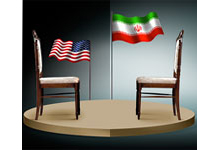Azerbaijan, Baku, January 11 / Trend , A.Badalova /
The results of U.S. economic sanctions against Iran were not expected for long. The world's largest manufacturer and trader of raw materials - Swiss Glencore - suspended deliveries of gasoline to the country, which make up small part of Iran's total imports - 102,000 barrels per day. The supply of gasoline by the Swiss trader to Iran was 17,000 barrels per day.
Glencore has ceased gasoline supply to Iran to avoid fallout from U.S. sanctions on companies supplying fuel to the Islamic republic, ending three decades of business that began with its founding firm, trade sources said Reuters reported.
In late last year, with majority votes, the U.S. House of Representatives approved a bill to impose new sanctions against Iran in order to stop Iran's nuclear development. Initiated by the U.S. President Barack Obama, the measure implies a ban on doing business in the United States for all foreign companies that supply oil products to Iran. The sanctions come into force after approval by the U.S. Senate. This measure extends the law, under which any company investing over $20 million in Iran's energy sector will be punished.
For Glencore, the halting of sales to Iran would have little impact on its global trading book, as the volumes are small for the world's largest independent commodities trader and second-largest independent oil trader. However, for Iran, this decision can have very serious consequences. In addition to the emergence of fuel lack in Iran, other companies may also follow the example of the Swiss company and stop the gasoline supply to the country.
Now Iran has to import up to 40 percent of the total domestic demand for fuel because of the weak development in the country's processing industry. From mid December to the end of March, Iran needs to import about two million tons of gasoline and about 810,000 tons of diesel fuel.
In 2008, BP Trading and Reliance ceased gasoline supply to Iran. Today, the major supplier of gasoline to Iran is China, which accounts for one third of Iran's gasoline imports. In addition, in November last year, the National Iranian Oil Products Refining & Distribution Company (NIORDC) and China's Sinopec signed a memorandum on mutual understanding on Chinese investment in the construction of seven refineries in Iran. Analysts, however, doubt on Iran's capabilities to increase the processing capacity soon due to lack of technological construction experience.
Chain reaction by international traders, which could follow the cessation of Glencore gasoline supplies to Iran, may cause a fall in prices for automobile fuel because of the loss of a large market.
Gasoline prices in Iran are preserved due to granting state subsidies. The cost of thousand liters of gasoline in Iran today is $400. For comparison: the lowest price of Euro-super 95 gasoline in 27 European countries exceeds 900 euros per thousand liters.
Today, the gasoline in Iran is sold via card system, which envisages selling limited volumes of fuel at subsidized prices. The cost of gasoline via card system, which is applied to both private car owners and drivers of buses is $0.1 per liter. In case of increase in consumer gasoline consumption, envisaged in card, a liter of gasoline at petrol stations will cost $0.4.
The 2010-2011 budget, which will be adopted next week, and the execution of which will begin in March, stipulates that the cost of local gasoline production via the system will remain the same - $0.1 per liter, and import - $0.4 per liter.






